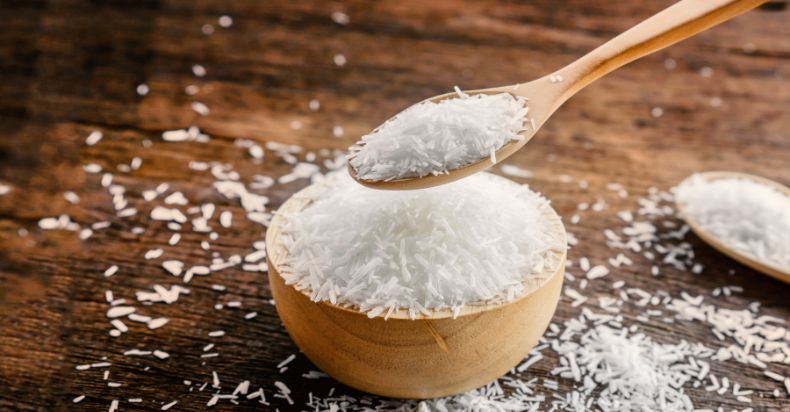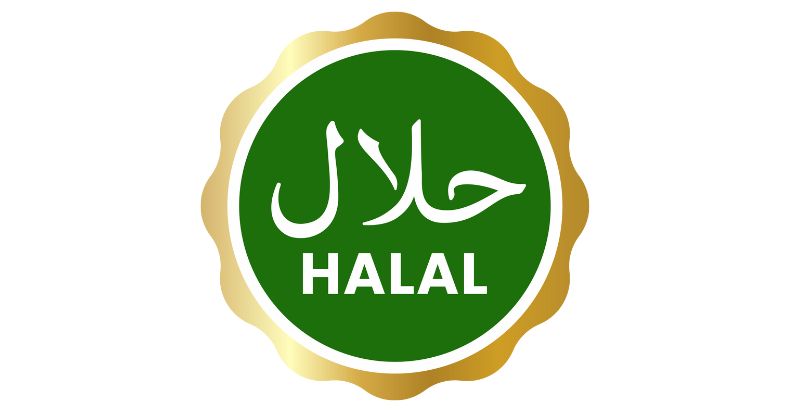In the realm of food science and culinary arts, E621, also known as Monosodium Glutamate (MSG), holds a significant place as a flavor enhancer commonly used in various cuisines around the world.
However, when it comes to Islamic dietary laws, the consumption of any substance is meticulously analyzed to determine whether it aligns with the principles of Halal (permissible) or falls under the category of Haram (forbidden).
The concept of Halal and Haram is deeply rooted in Islamic tradition, governing not only the spiritual aspects but also the daily lifestyle choices of Muslims, including dietary preferences.
It is a religious obligation for Muslims to adhere to these laws, as they are seen as a manifestation of one’s faith and obedience to the divine commandments.
Consequently, the discussion surrounding the Halal or Haram status of E621 is not merely a matter of personal health or preference but holds significant religious implications.
In this context, the debate on whether E621 is Halal or Haram has garnered attention, stirring diverse opinions and discussions among scholars, food scientists, and consumers.
This article aims to delve deep into this topic, offering a comprehensive analysis that encompasses various perspectives to provide a well-rounded view on the matter.
Through this exploration, we aspire to equip readers with the knowledge to make informed decisions aligning with their faith and dietary choices.
What Is E621?

Historical Background of E621
In the early 20th century, a significant discovery was made by a Japanese chemist named Kikunae Ikeda.
He managed to isolate a crystalline compound which was the source of a unique, savory flavor found in seaweed broth.
This compound was later named Monosodium Glutamate or E621.
Since its discovery, it has revolutionized the food industry, offering a new dimension of taste known as umami, the fifth basic taste alongside sweet, sour, bitter, and salty.
Common Uses of E621 in the Food Industry
E621 has found its way into a myriad of food products due to its ability to enhance flavors and make dishes more palatable.
It is commonly found in processed foods, snacks, canned soups, and restaurant meals, among others.
Its usage is not confined to any particular cuisine, making it a global phenomenon in the culinary world.
The food industry appreciates it for its cost-effectiveness and its ability to elevate the taste profile of various dishes, from savory snacks to full-course meals.
Scientific Perspective on the Safety of E621
Over the years, the safety of E621 has been a topic of extensive research. Scientific studies have generally affirmed its safety when consumed in regular, dietary amounts.
The U.S. Food and Drug Administration (FDA), along with other international food safety agencies, categorizes E621 as generally recognized as safe (GRAS).[1]
However, it is essential to note that excessive consumption can lead to adverse effects, a phenomenon known as the “Chinese Restaurant Syndrome,” characterized by symptoms like headaches and flushing.
Therefore, moderation is advised in its consumption to avoid potential health issues.
In the following sections, we will delve deeper into the Islamic dietary laws to analyze whether the consumption of E621 aligns with the principles of Halal or if it is considered Haram, offering readers a comprehensive insight into this pertinent issue.
Islamic Dietary Laws

Definition of Halal and Haram
In the Islamic faith, the dietary laws are a fundamental aspect that governs the life of a Muslim.
The terms “Halal” and “Haram” are Arabic words that translate to “permissible” and “forbidden” respectively.
These laws are derived from the Quran, the Hadith (sayings and actions of Prophet Muhammad), and the consensus of Islamic scholars.
Halal dictates what is lawful and allowed for Muslims to consume, while Haram refers to the substances that are prohibited.
These classifications are not limited to food but extend to all aspects of life, emphasizing the importance of living a life in accordance with the divine commandments.
Importance of Consuming Halal Food in Islam
Consuming Halal food is not just a dietary preference but a religious obligation for Muslims.
It is seen as a manifestation of one’s faith and a reflection of personal piety.
The Quran, which is the holy book of Islam, emphasizes the importance of consuming what is Halal and Tayyib (pure and wholesome).
This principle encourages Muslims to consume food that is not only lawful but also clean, healthy, and ethically sourced.
It is believed that adhering to these dietary laws brings spiritual benefits and fosters a strong connection with the divine.
Criteria for a Substance to be Considered Halal or Haram
Determining whether a substance is Halal or Haram involves a meticulous analysis of its origin, processing methods, and the nature of the ingredients used.
Generally, for a food item to be considered Halal, it must not contain any component that is Haram, and it should be processed and prepared using utensils and machinery that have not been contaminated with Haram substances.
Moreover, the Islamic authorities and scholars play a vital role in this determination, providing guidance based on the principles laid down in the Islamic scriptures.
In the context of E621, the analysis becomes intricate, considering its widespread use in the food industry and the various sources from which it can be derived.
The upcoming section will focus on a detailed analysis of E621’s Halal or Haram status, considering different perspectives and scholarly opinions to provide a comprehensive view on this matter.
Analysis of E621’s Halal or Haram Status
Analysis of the Ingredients and Manufacturing Process of E621
To ascertain whether E621 is Halal or Haram, it is imperative to scrutinize its ingredients and the manufacturing process closely.
E621, or Monosodium Glutamate, is primarily synthesized from fermented sugars, which can be derived from various sources including beets, cane sugar, or corn.
The fermentation process is akin to that used in the production of yogurt, vinegar, and other fermented products.
However, the critical aspect to consider is whether any stage of the production involves substances or processes that are considered Haram, such as cross-contamination with alcohol or the use of enzymes derived from prohibited sources.
Opinions from Various Islamic Scholars and Organizations on E621
The Halal or Haram status of E621 has been a topic of discussion among Islamic scholars and organizations worldwide.
Here are the various opinions and considerations regarding its halal or haram classification:
Source and Production Process:
The halal or haram status of E621 is influenced by its source, production process, and potential presence of animal-derived ingredients.
Some scholars argue that if E621 is sourced from non-halal substances or processed with haram ingredients, it would be considered haram.
Others who consider it halal emphasize that its primary source is plant-based and not directly derived from animals, hence if processed according to halal guidelines, it can be considered halal.
Certifications and Labeling:
In the USA and Canada, MSG is kosher certified and meets the halal requirements.
However, the specific certifications and labeling may vary depending on the manufacturer and region.
It is recommended to consult with reliable Islamic authorities or certification organizations for specific guidance based on the source, production process, and ingredients used in a particular product.
Incidents in Specific Regions:
In Indonesia, there were reports of MSG being produced using pork fat media to grow yeast by Ajinomoto Indonesia, which raised concerns in the Muslim community.[2]
It is crucial to ensure that the manufacturing process and ingredients used meet the halal requirements for individuals following halal dietary practices.
Consultation with Islamic Authorities:
To make an informed decision about the halal status of a specific product containing E621, it is advisable to consult with reliable Islamic authorities, certification organizations, or scholars knowledgeable in Islamic dietary guidelines.
Personal Choices and Responsibility

The Role of Personal Choice and Responsibility in Consuming E621
Given the varying opinions and considerations, individuals seeking clarity on this matter are encouraged to undertake personal research and consult with knowledgeable scholars.
Personal Research
Personal research is a vital step in understanding the intricacies surrounding the halal or haram status of E621.
Individuals are encouraged to delve into various credible sources to gather information about the source, production process, and potential presence of animal-derived ingredients in E621.
Understanding the production process, including the fermentation of specific carbohydrates and the neutralization process, can provide insights into whether E621 meets halal dietary guidelines.
Consultation with Knowledgeable Scholars
Consulting with knowledgeable scholars can provide a deeper understanding and guidance on this matter.
Scholars who are well-versed in Islamic dietary guidelines can offer specific guidance based on the source, production process, and ingredients used in products containing E621.
They can help individuals make informed decisions based on Islamic principles and teachings.
Certifications and Labeling
It is also essential to pay attention to certifications and labeling on product packaging.
In regions like the USA and Canada, E621 is kosher certified and meets halal requirements.
However, it is crucial to note that certifications and labeling may vary depending on the manufacturer and region.
Individuals are advised to look for certification labels or contact manufacturers directly to ensure compliance with halal or kosher requirements.
Community Discussions and Insights
Engaging in community discussions and seeking insights from others who have navigated similar complexities can be beneficial.
Sharing experiences and knowledge can help build a supportive community where individuals can find guidance and support in making informed decisions.
Tips for Individuals Who Choose to Avoid E621
Here are some tips for individuals who choose to avoid E621 (Monosodium Glutamate or MSG) in their diet:
- Read Labels Carefully: Always read the ingredient labels on food products to check for the presence of E621 or MSG. It might also be listed under different names such as “hydrolyzed vegetable protein” or “autolyzed yeast”.
- Cook from Scratch: Preparing meals at home from scratch allows you to have complete control over the ingredients used, making it easier to avoid E621.
- Avoid Processed Foods: E621 is commonly found in processed foods. Try to minimize your intake of processed foods and opt for fresh, whole foods instead.
- Seek Alternatives: Use natural alternatives to enhance the flavor of your dishes, such as herbs, spices, lemon juice, or vinegar.
- Consult with a Nutritionist: If you are unsure about how to avoid E621 in your diet, you might consider consulting with a nutritionist or dietitian for personalized advice.
- Research Restaurants: Before dining out, research restaurants and their menus to find options that do not use MSG in their dishes.
- Communicate Dietary Preferences: When dining out, communicate your dietary preferences to the staff to ensure that your meal is prepared without MSG.
- Use Fresh Ingredients: Incorporate fresh fruits, vegetables, and meats into your diet, as they are less likely to contain E621.
- Educate Yourself: Learn about the different names and forms that MSG can take to better identify it on ingredient lists.
- Community Support: Join communities or forums where you can share and receive tips and support from others who are also avoiding E621.
- Experiment with Cooking: Experiment with different cooking techniques and recipes that do not require the use of MSG to enhance the flavor.
- Grow Your Own Food: If possible, grow your own vegetables and herbs. This way, you can be sure of what goes into your food.
- Practice Moderation: If avoiding E621 completely is not possible, try to consume products containing it in moderation to minimize potential adverse effects.
- Stay Informed: Stay informed about the latest research and developments regarding the safety and effects of E621 to make informed decisions about your diet.
Remember, the key to successfully avoiding E621 is to be vigilant about the ingredients in the food products you consume and to prioritize fresh, whole foods in your diet.
E621 Alternative Food Additives that are Halal
When looking for halal alternatives to E621 (Monosodium Glutamate or MSG), it is essential to consider food additives that are not only permissible according to Islamic dietary laws but also serve the purpose of enhancing the flavor of the food, similar to MSG.
Here are some alternatives that are generally considered halal:
- Yeast Extract: A natural ingredient derived from yeast, which is often used as a flavor enhancer in various food products. It is rich in amino acids and can provide a savory taste similar to MSG.
- Hydrolyzed Vegetable Protein (HVP): Made from plants, this is a flavor enhancer that is often used in soups, stews, and processed meats. It is generally considered halal as it is plant-based.
- I+G (Disodium 5′-Inosinate and Disodium 5′-Guanylate): These are flavor enhancers that are often used together to provide a taste similar to MSG. They are generally derived from plants and are considered halal.
- Salt: A common and natural flavor enhancer that is halal. It can be used in various dishes to enhance the flavor.
- Spices and Herbs: Natural spices and herbs like garlic powder, onion powder, and others can be used as flavor enhancers. They are halal and can add a rich flavor to the dishes.
- Citric Acid: A natural preservative and flavor enhancer that is derived from citrus fruits. It is halal and can add a tangy flavor to the dishes.
- Umami Powder: A natural flavor enhancer that is derived from shiitake mushrooms. It is halal and can provide a savory umami flavor to the dishes.
- Seaweed Extracts: Extracts from seaweeds like Kombu can be used as natural flavor enhancers. They are halal and can provide a savory taste to the dishes.
- Tomato Paste: A natural source of umami flavor, tomato paste can be used as a halal alternative to MSG to enhance the flavor of various dishes.
- Anchovy Paste: For non-vegetarian dishes, anchovy paste can be a halal alternative to MSG, providing a rich and savory flavor to the dishes.
It is always recommended to check the certification and labeling of the products to ensure their halal status.
Moreover, consulting with knowledgeable scholars or certification organizations can provide specific guidance on the halal status of these alternatives.
Conclusion
The halal or haram status of E621 is a personal journey that requires diligence and a proactive approach. By undertaking personal research and consulting with knowledgeable scholars, individuals can make informed decisions that align with their beliefs and values.
As we reach the culmination of our in-depth exploration, we find ourselves equipped with a wealth of information regarding the Halal or Haram status of E621.
Through a meticulous analysis encompassing historical background, scientific perspectives, Islamic dietary laws, and global case studies, we have unearthed various facets of this complex issue.
Despite extensive research and discussions, the debate surrounding the Halal or Haram status of E621 continues to be a topic of contention.
As we conclude, we hope that this comprehensive analysis serves as a valuable resource, guiding individuals in making informed choices that align with their faith and dietary preferences.
Through education and dialogue, we aspire to foster a community that respects diversity and promotes unity in the face of complex issues such as the Halal or Haram status of E621.
